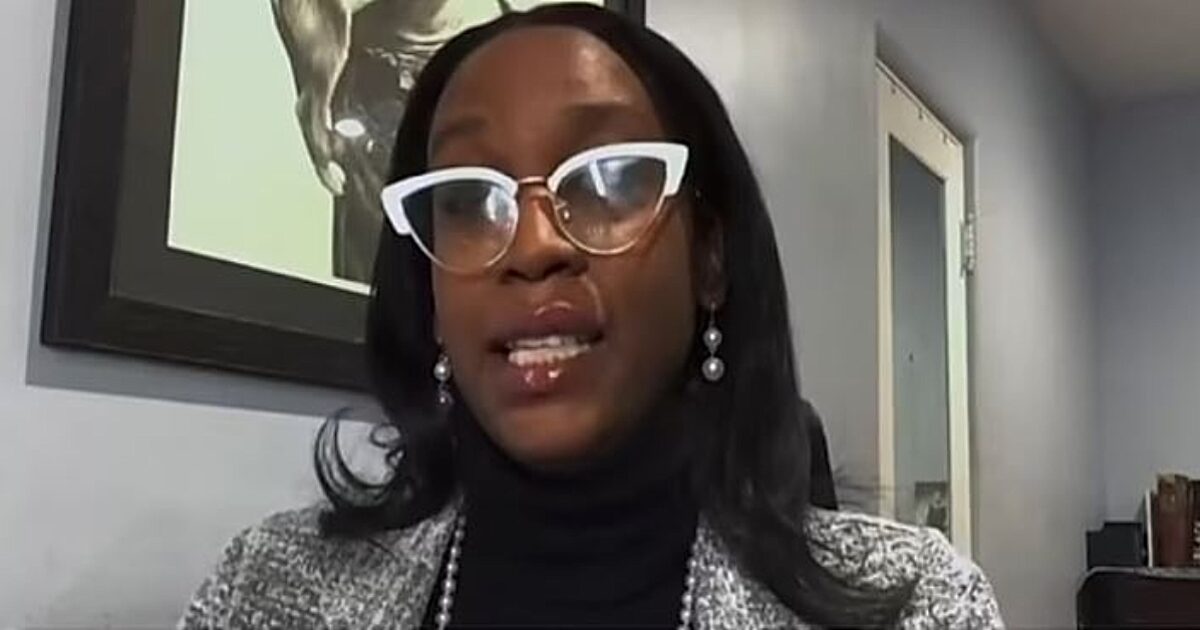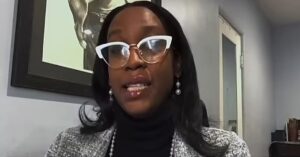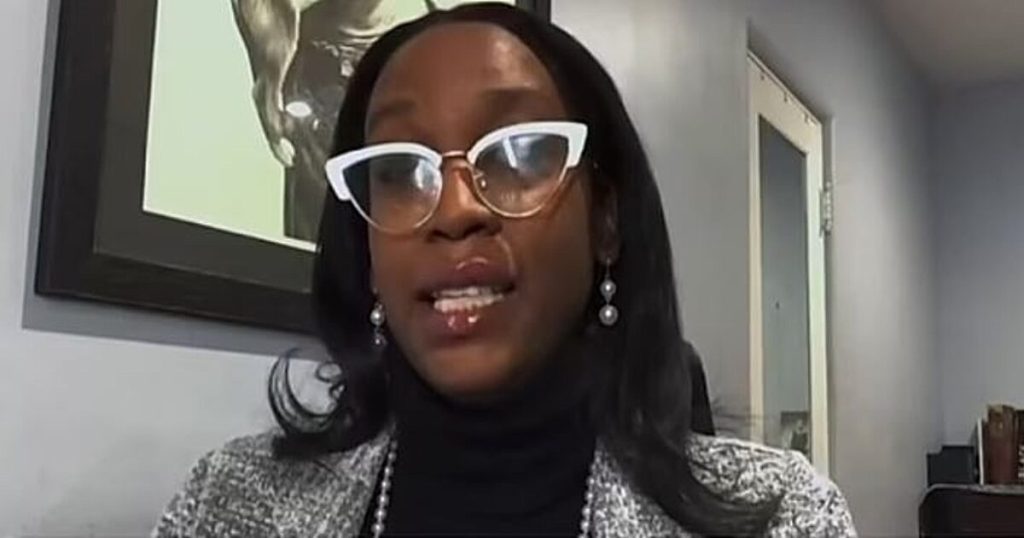

Kamilah Moore, the chair of California’s Reparations Task Force, spoke with MSNBC host Rev. Al Sharpton, asserting that the state should pay every black person $1 million and that homeless black people should be at the head of the line.
Moore claims that California’s housing practices, which allegedly targeted black Americans between 1933 and 1977, had a direct effect on today’s homeless population according to the Daily Mail. It’s an argument that blames previous circumstances for homelessness rather than current progressive policies and eschews personal responsibility altogether.
The chair asserts that black people suffered economic losses of about $569 billion between 1933 and 1977 as a result of redlining housing practices that resulted in discrimination and homelessness. Redlining is a discriminatory practice where certain homes in neighborhoods were kept from being sold to people of color or low income.
She went on to brand housing discrimination as one of the “five state sanction atrocities” against black people.
View this post on Instagram
The task force initially recommended that the state compensate each black resident up to $223,200. That number has now risen to $1 million with economists on the panel estimating that is the amount in reparations owed to black Californians descended from slaves.
Moore is stating that as the panel is preparing for its final recommendation in July, it is also weighing how to help those who need the money most. The math-challenged panel laughably insists that the payments would “boost the economy.”
Black activists are threatening the state, demanding they fork over reparations or face “a serious backlash.”
Moore and her “Reparations Task Force” have listed five “atrocities” that California has ostensibly inflicted on black residents that include government taking of property, devaluation of black-owned businesses, housing discrimination and homelessness, mass incarceration and over-policing, as well as healthcare.
Did you know: California enslaved African Americans? Yes! California technically was a ‘Slave State’.
Over 1500 African Americans were enslaved in California by 1852.
Watch my #TikTok for the full video: https://t.co/xvFzQ601X6#AB3121 #CRTF #Reparations #ReparationsNow pic.twitter.com/f1xd84LZgc
— Kamilah V. Moore, Esq. (@KamilahVMoore) January 3, 2023
According to the U.S. Department of Housing and Urban Development’s annual report on homelessness, roughly 34 to 40 percent of the homeless population is black.
Why are black homeless any different from Caucasian, Asian, or any other?
— America First (@2APewPew) January 6, 2023
Moore met with economists on the valuation of what she calls “atrocities” that have impacted the black community.
“They came up with $127,000 per year of the life expectancy gap between black and white Californians,” Moore stated during a panel at Harvard. “That comes to just under $1 million for each black Californian descended from slaves.”
She went on to admit that “California can’t pay all that.” Therefore, her panel will have to decide what an adequate value and payment method would be to recommend to state lawmakers. That recommendation will be made on July 1.
The task force is the first of its kind. Moore told MarketWatch over the summer that reparations would help, not hinder the economy.
What a racket!
— WilliSue (@SusanWi31620743) January 6, 2023
“I expect it to have a positive impact on the economy, to go beyond the dominant messaging that reparations is a handout or that black people aren’t good with money. [Reparations] will work to close the lineage/racial wealth gap, which would in turn stimulate the economy, via the proliferation of African Americans being able to buy a home or vehicle, open a business, and/or contribute to the existing economy,” she remarked.
Activist Deon Jenkins told the first meeting of the task force that money given to black people should be in-line with the average price of a home in the state, which amounts to $800,000.
Brother deon moving the needle @DeonDJenkins #reparationsnow #Reparations #california #PBS pic.twitter.com/h6XbLwkf9U
— POOKIE (@CousinPookieFBP) December 15, 2022
On code with @DeonDJenkins #Reparations #ReparationsNow #blackamerican #freedmen pic.twitter.com/PiFhAJgoEJ
— max fennell (@maxfennell) December 14, 2022
“Either they’re going to comply or it’s going to be a serious backlash,” Jenkins said in an interview.
“Defense, money, land, grants. Four elements of every society, every nation — a defensive structure, economy, land, and having access to that economy,” Jenkins told the task force. “If that is not being addressed, reparations will not hold. Reparations — repair is the root word — we cannot have repair if those elements are not addressed.”
Max Fennell, a 35-year-old entrepreneur and the first black professional tri-athlete, told the task force that every black person should get $350,000 in compensation. He also said black businesses should each receive $250,000.
California Reparations taskforce meeting. The fam on deck. S/o to @Msflygurl79 @maxfennell and @DeonDJenkins 🫡🫡🫡 pic.twitter.com/LIMzfUNg06
— CRtheGreat (@CRdaDizz) December 14, 2022
“It’s a debt that’s owed, we worked for free,” he told the task force. “We’re not asking — we’re telling you.”
“The tangibles of what I’m asking for is $350,000 per black American in California that’s tangible, small business grant $250,000 and land 15-20 acres,” Fennell concluded.
Republished with permission from American Wire News Service
Get the latest BPR news delivered free to your inbox daily. SIGN UP HERE

